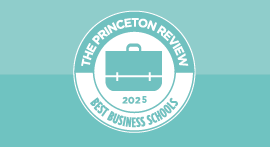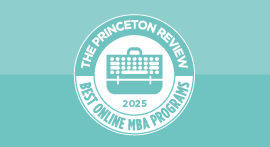Courses in Sustainability
Yes
Sustainability course is
Optional
Description
MGMT 810
Societal Wealth Venturing
Description: The basic thesis of this elective course is that many societal problems, if attacked entrepreneurially, create opportunities for launching businesses that simultaneously generate profits and alleviate the societal problem. This approach generates societal wealth as well as entrepreneurial wealth. The course is distinguished from public sector initiatives to address social problems, and also from “social entrepreneurship” programs where social wealth creation is a by-product rather than the target of the entrepreneurial effort. Student teams are expected to develop a plan to launch a societal wealth generating business. The preference is for them to begin the course with already conceived ideas for entrepreneurial solutions to social problems. They may also join a team to work on a project proposed by a student who already has a business idea.
Format: Lecture, classroom participation, live case studies (presentations of studentsÂ’ own work), interim assignments, and final business plan.
LGST 815
Environmental Management Law & Policy
Description: This course provides an introduction to environmental management with a focus on law and policy as a basic framework. The primary aim of the course is to give students a deeper practical sense of the important relationship between business and the natural environment and to think critically about how best to manage this relationship.
OPIM 672
Decision Support Systems
Description: The past few years have seen an explosion in the amount of data collected by businesses and have witnessed enabling technologies such as database systems, client-server computing and artificial intelligence reach industrial strength. These trends have spawned a new breed of systems that can support the extraction of useful information from large quantities of data. Understanding the power and limitations of these emerging technologies can provide managers and information systems professionals new approaches to support the task of solving hard business problems. This course will provide an overview of these techniques (such as genetic algorithms, neural networks, data warehousing) and discuss applications such as fraud detection, customer segmentation, trading, marketing strategies and customer support.
Format: Lectures and discussions, written assignments, projects using software packages to build models, final exam.
BPUB/REAL 772
Urban Public Policy and Private Economic Development
Description: This course considers the pervasive interaction between real estate developers and government. Governments influence real estate development in many ways: through zoning laws, taxes, public expenditures, impact fees, infrastructure, building codes, environmental regulations, to name just a few. Much of the time in the course is spent understanding the effect on residential and commercial real estate development of these government interventions.
Format: Lectures, formal class discussion, visitors from private developers and policy officials, midterm and in-class final quiz.
Prerequisites: A basic understanding of microeconomics.
BPUB 773/FNCE 730/REAL 730
Urban Fiscal Policy
Description:The purpose of this course is to examine the financing of governments in the urban economy. Topics to be covered include the causes and consequences of the urban fiscal crisis, the design of optimal tax and spending policies for local governments, funding of public infrastructures and the workings of the municipal bond market, privatization of government services, and public financial systems for emerging economies. Applications include analyses of recent fiscal crises, local services and taxes as important determinants of real estate prices, the infrastructure crisis, financing and the provision of public education, and fiscal constitutions for new democracies using South Africa as an example.
Format: Lecture, discussion, and exams.
BPUB 788
International Industrial Development Strategies
Description: This course analyzes the alternate industrialization strategies emerging economies have followed and their implications for firm managers and portfolio advisers. Industrial targeting, import substitution policies, export orientation, the role of foreign direct investment, and recent macroeconomic and banking crises are considered in detail. The role of theWorld Bank and the International Monetary Fund is analyzed. The impact of globalization and recent trends in information technology are analyzed. The sources of rapid growth in east Asia, the collapse in 1997, and the potential for further growth are considered. Microfinance strategies are intensively analyzed.
Format: To be determined by instructor
Research Opportunities in Sustainability
Yes
Description
Several courses include student research opportunities. Also, Leonard Lodish, former Vice Dean of Wharton West, took on a new role as Vice Dean of the Program for Social Impact. In this role, he works closely with faculty and students to expand WhartonÂ’s initiatives pertaining to social responsibility and social progress.
Len is the Samuel R. Harrell Professor of Marketing as well as the leader and co-founder of the Global Consulting Practicum, which partners MBA students with foreign and domestic clients seeking to expand their international marketing efforts. He has been on the Wharton faculty since 1968 and was chair of the Marketing Department from 1984-1988 and 1991-1992. As Vice Dean of Wharton West since 2001, LenÂ’s outstanding work has afforded us the opportunity to develop an even stronger presence on the west coast, requiring the new leadership to be based in San Francisco.
LenÂ’s primary research and consulting areas are in entrepreneurial marketing, strategic and tactical marketing resource planning, marketing decision support systems, and applications in firm/marketing strategy, sales force, advertising, and promotion planning.
He received his Ph.D. in Marketing and Operations Research from MIT and his A.B. in Mathematics from Kenyon College. He can be reached by email at lodish@wharton.upenn.edu.
Valerie F. Malter was also name Senior Advisor for Social Initiatives in October 2008. In this consultant role, Valerie is the chief liaison for all of WhartonÂ’s social impact and responsibility initiatives. Working closely with the Social Impact and Responsibility faculty committee, she will develop a strategic plan for WhartonÂ’s long-term participation in social impact activities, create an Advisory Board on Social Impact drawn from multiple constituencies, and build a system to document and enhance faculty and student involvement in social responsibility efforts.
ValerieÂ’s extensive background in business and social impact activities makes her the ideal person to lead and develop resources for WhartonÂ’s many social responsibility and community outreach endeavors. She has held Managing Director positions at JP Morgan Investment Management, Zurich Scudder Investments, and Chancellor Capital Management, where she developed investment strategies, managed growth assets and portfolios, and played a key role in client maintenance. She is the author of How to Be a Growth Investor (McGraw-Hill, 1999) and a member of the advisory board for FirstRain Corporation. An avid triathlete, she is also the co-founder and president of the Tri-S Foundation, a New York non-profit organization that competes in endurance sports to fund community-based programs encouraging economic self-sufficiency for women.
A Chartered Financial Analyst, she earned her MBA from the Darden School at the University of Virginia and her BS from Boston University.
School's environmental commitment 1:
Wharton hosted the national Net Impact Conference in 2009 and has an active Wharton Social Impact club and conference (http://www.whartonsocialimpact.org/Social_Impact/Home.html) and Alliance for Social Responsibility (http://www.whartonsocialresponsibility.org/)
Club Description
Wharton Social Impact (WSI) is a professional club that embraces all opportunities to enhance the public good. Our members include students pursuing public interest jobs in the private, public and/or non-profit sectors at any stage of their career, as well as those interested in serving on non-profit boards and other advisory roles. Through WSI, our members receive career services support, grow their professional networks, influence business education and organize events to examine how business can make a positive impact in the world.
Club Mission
Wharton Social Impact (WSI) is a community of Wharton students interested in using their business skills and expertise to promote the common good across the public, private and non-profit sectors.
Club Activities
WSI Activities Include:
Net Impact North America Conference
Wharton Charity Fashion Show
Annual Water Symposium
Public Interest Career Management
Social Impact Speaker Series
Professor Lunch Discussion Series
Social Events Throughout the Year
And many more...
School's environmental commitment 2:
We recycle in every classroom. Every campus building has had a LEAD review. The university is one of the largest purchasers of wind power.
School's environmental commitment 3:
Development of TerraPass as part of a class and it sells carbon-offset credits online.




